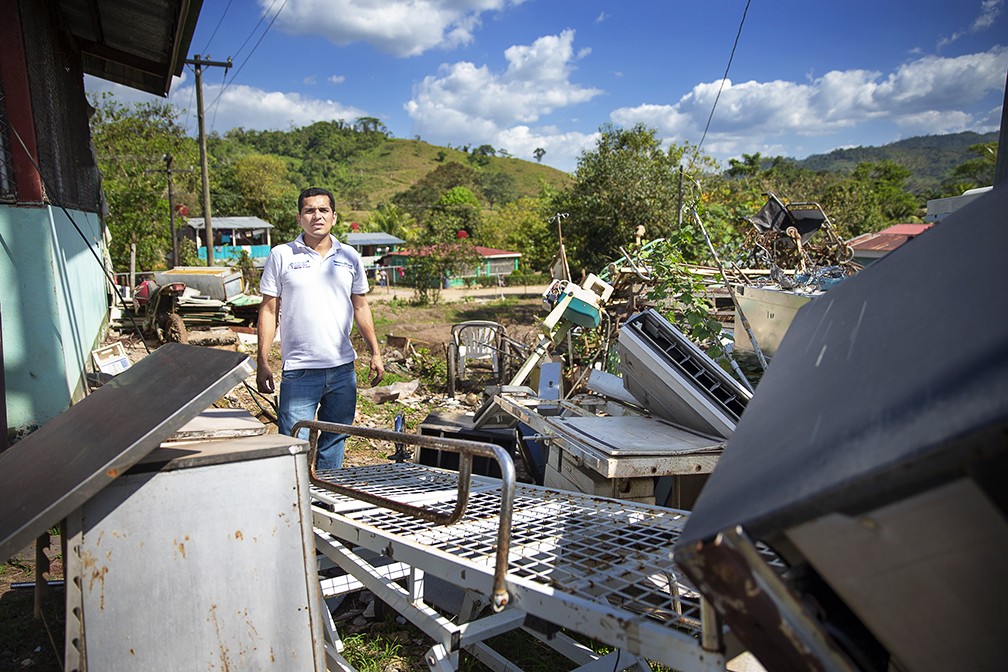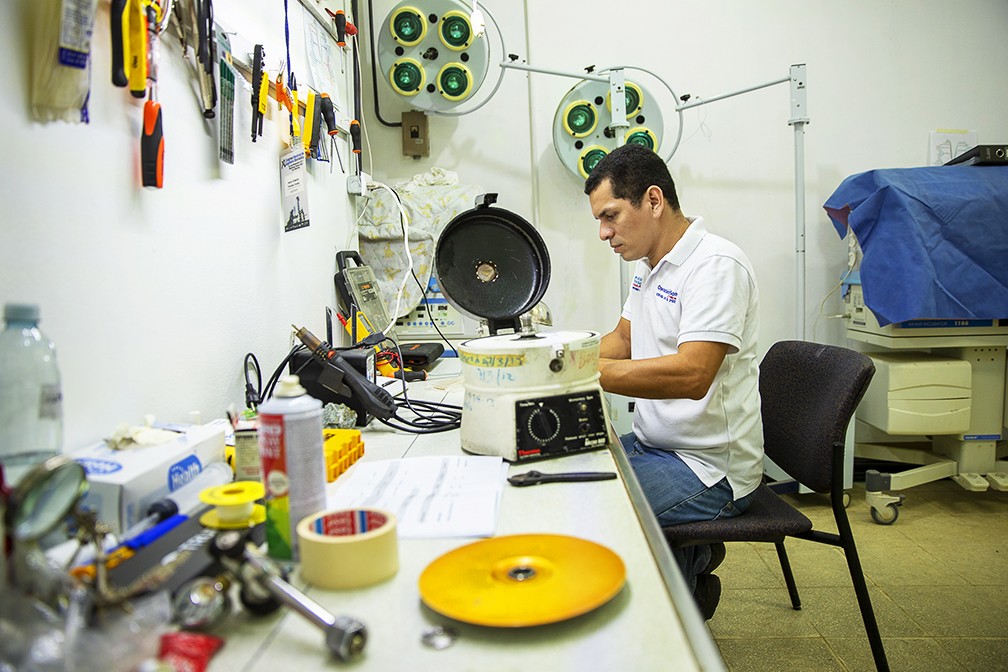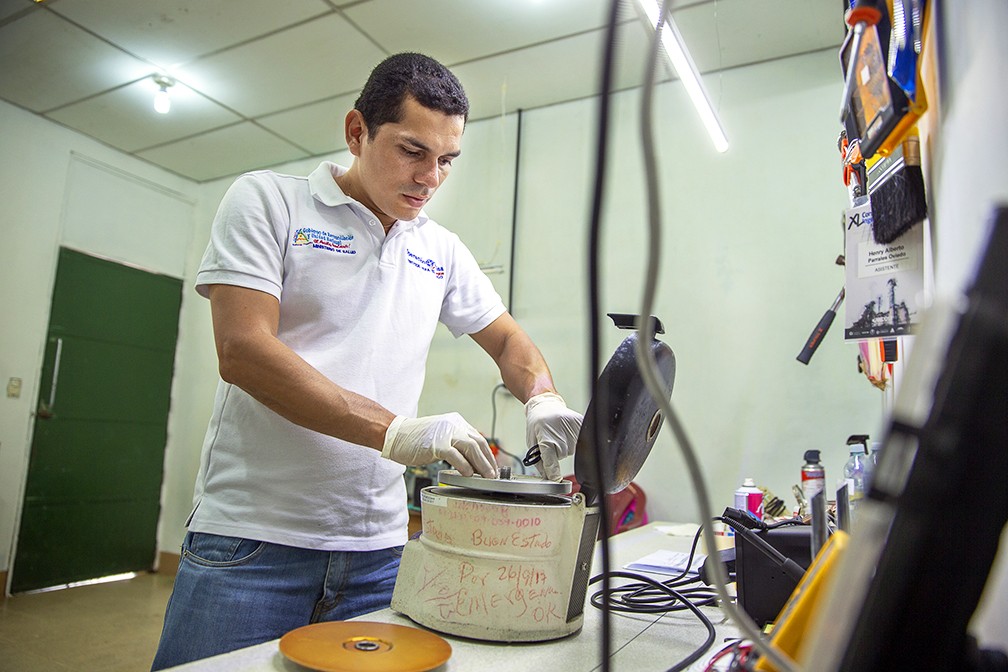Editor’s note: Since Operation Smile’s founding in 1982, delivering safe surgery to people living with cleft conditions in low-resource settings around the world has been – and will continue to be – its driving force.
But as the organization expanded into more and more places of dire need, it has been met by the devastating effects of hospitals operating with inadequate infrastructure and equipment.
Fueled by the foundational belief that everyone in need of surgery deserves exceptional care, Operation Smile is applying its expertise in treating cleft conditions to create sustainable solutions that will bring safe and essential surgery to people where it’s needed most.
In rural northeastern Nicaragua, this life-saving work is already underway through a pilot project called Cirurgía para el Pueblo – “Surgery for the People.” For deeper context on the problems that this initiative is addressing, follow this link to watch the video and read more.
Henry Parrales opens the metal gate that leads to a small plot of land behind the primary hospital in Bonanza, Nicaragua.
Just around the side of the building lies twisted piles of what appears to be garbage at first glance.
A closer look reveals that it’s anything but trash.
“Before I started here, they just said, ‘This equipment doesn’t work,’ and the health workers threw it away,” Henry says as he surveys the tangled masses of discarded medical equipment.

Exposed to the harsh Nicaraguan elements, these devices’ days are numbered. But today, Henry is making sure that no more pieces of critically needed medical equipment suffer the same fate.
As a biomedical technician, Henry is part of a project called Cirurgía para el Pueblo – “Surgery for the People.” Supported by the UBS Optimus Foundation, the private/public partnership between Operation Smile and Nicaragua’s Ministry of Health is improving the surgical infrastructure of two primary hospitals and spreading awareness about surgically treatable conditions to the people of Nicaragua’s remote and impoverished northeastern region.
Henry’s role in the project is to perform maintenance on medical equipment and ensure that each machine is functioning properly.
Between March and September 2018, Surgery for the People’s biomedical team repaired more than 200 pieces of medical equipment, saving more than $316,000.*
For many patients in this area of the country, their survival may depend on the equipment that he repairs.

In the hospital’s workshop, Henry lends his masterful touch to a piece of equipment that would have likely ended up in the pile behind the building before he began working on the project.
“What I am fixing now is a nebulizer, which is used to relieve children’s breathing difficulties,” Henry says. “We use this daily, especially in emergencies, since the climate here is varied and breathing difficulties are common.”
Every day, Henry applies his knowledge and skill to ensure that the hospitals are the safest possible places for their patients.
He monitors and repairs crucial equipment like defibrillators, which are used to save lives during cardiac arrest. By prioritizing neonatal equipment, Henry ensures that the hospitals’ youngest patients receive the care that they deserve.
“Also, I check the operating theater and the emergency room so that surgery can be safe,” says Henry. “It is my job to check that all of the equipment works perfectly.”
And thanks to Henry, the “junk” that would once be tossed aside is now being turned into equipment that will function as designed: to help save lives.
“I am very happy with my work,” Henry said. “There is less waste and the money can be used to buy medicines and improve other areas.”

* These figures were derived from field reporting and are dynamic and subject to change.